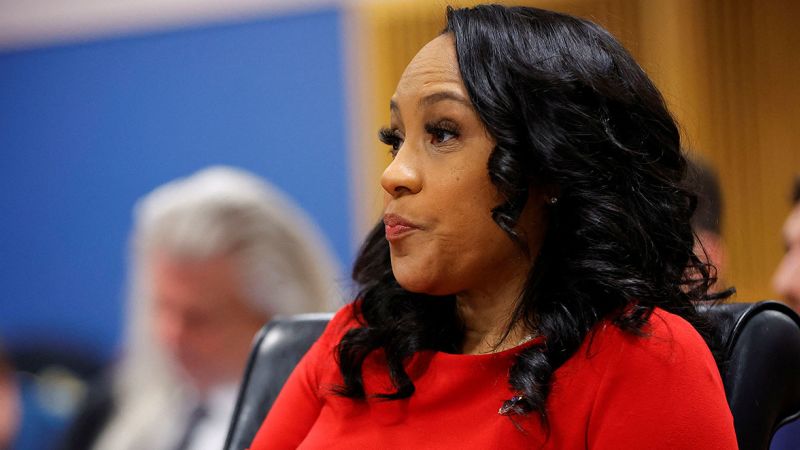Lawyers for several defendants in the Georgia criminal case against former President Donald Trump and others are considering whether to seek a gag order against Atlanta-area prosecutor Fani Willis if their efforts to have her disqualified fail. Despite being rebuked by the presiding judge, Willis has continued to speak publicly about the case, sometimes invoking race. While a gag order against Willis could temporarily benefit Trump and his co-defendants, it may also hinder their efforts to disqualify her or prompt requests for a gag order against them.
The ongoing discussions regarding a gag order come as multiple defendants, including Trump, have unsuccessfully attempted to dismiss the Georgia election subversion case. Fulton County Superior Court Judge Scott McAfee recently upheld the indictment, rejecting claims of free speech as a defense. Willis, who is juggling her re-election campaign with prosecuting the case, has faced backlash for her public comments, including remarks on race and the qualifications of others involved in the case.
Despite the controversy surrounding Willis and the case, a decision to implement a gag order ultimately rests with Judge McAfee. While some defense attorneys involved in the case have considered seeking a gag order against Willis, others believe it is premature and could backfire. As the case proceeds, with no trial date set yet, there are differing opinions on the potential impact of a gag order at this stage.
Willis’ re-election campaign adds another layer to the potential pursuit of a gag order, as she is bound by ethical rules that limit what she can publicly discuss regarding the case. Both Willis and Judge McAfee are up for re-election this year, further complicating the situation. The judge’s public comments on the case, in addition to Willis’, could be used to argue against a potential gag order, especially if defendants fear a broad gag order that would affect both sides.
Given the complexities and risks involved in seeking a gag order, some defense attorneys believe it may not be worth pursuing at this time. With no trial date set and the possibility of conflicting interests among the defendants, judges, and the public, the decision to impose a gag order remains uncertain. The ongoing tensions and public statements regarding the case continue to fuel speculation about the future direction of the legal proceedings in Georgia.


